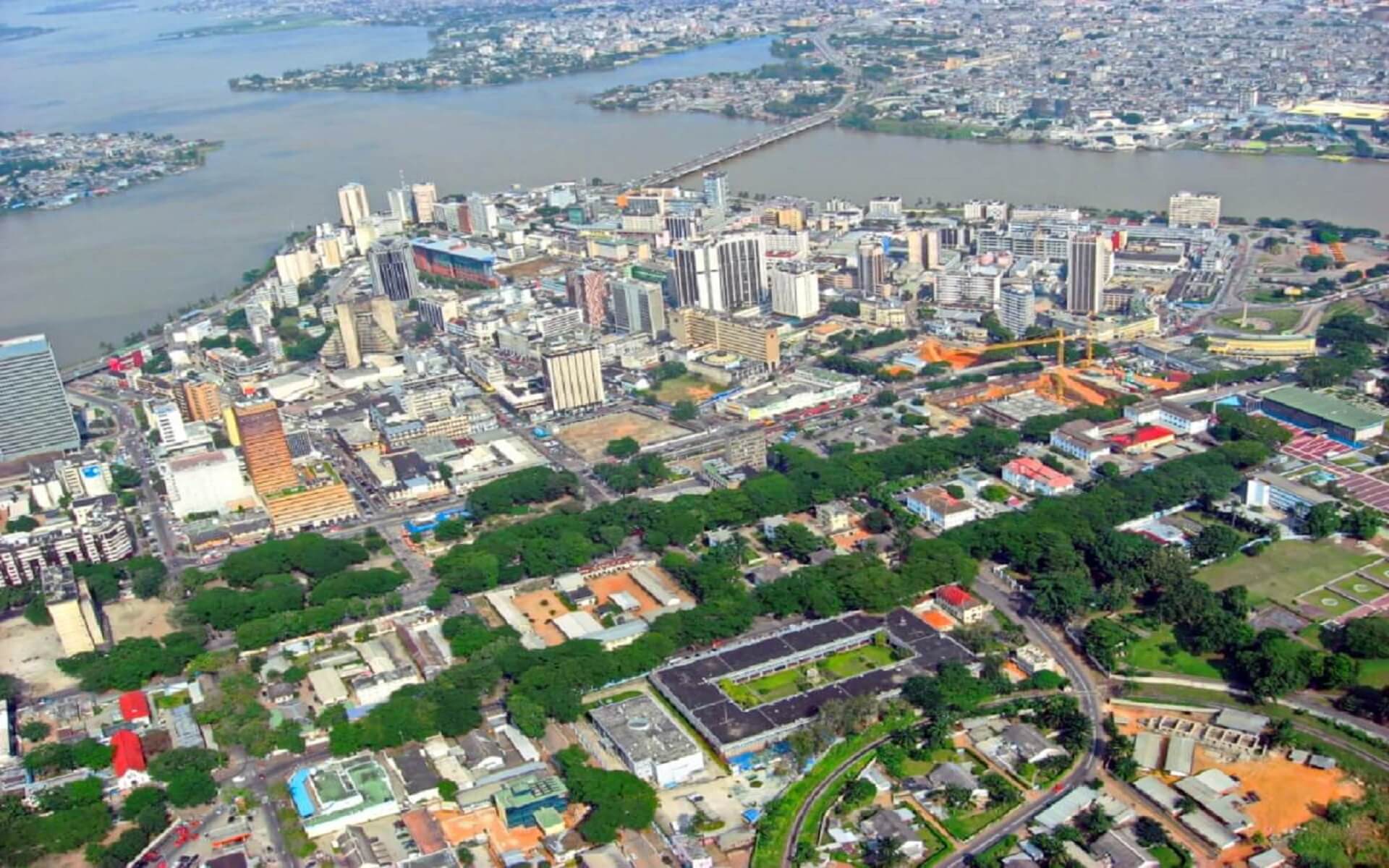By the end of the 1880s, France had gained authority over the Ivory Coast’s coastal areas, and Britain acknowledged French sovereignty in the territory in 1889. Treich-Laplène was appointed titular governor of the province by France in the same year. Ivory Coast became a French colony in 1893, and Captain Binger was named governor. The colony’s eastern and western boundaries were established by agreements with Liberia in 1892 and Britain in 1893, but the colony’s northern boundary was not established until 1947 due to French government efforts to annex parts of Upper Volta (modern-day Burkina Faso) and French Sudan (modern-day Mali) to Ivory Coast for economic and administrative reasons.
The primary aim of France was to increase export output. Plantations of coffee, cocoa, and palm oil were quickly established along the shore. The Ivory Coast was the only West African nation with a sizable settler population; elsewhere in West and Central Africa, the French and British were mostly bureaucrats. As a consequence, French people controlled one-third of the cocoa, coffee, and banana plantations, and a forced-labor system was implemented.
French military contingents were deployed interior to build new stations during the early years of French administration. Some of the indigenous people opposed the French invasion and colonization. Samori Ture, who established the Wassoulou Empire in the 1880s and 1890s, which included vast swaths of modern-day Guinea, Mali, Burkina Faso, and the Ivory Coast, was one of the most steadfast opponents. The huge, well-equipped army of Samori Ture, which could manufacture and maintain its own weapons, drew widespread support across the area. Military pressure was used by the French in response to Samori Ture’s extension of provincial authority. In the mid-1890s, French operations against Samori Ture increased, with strong opposition, until he was arrested in 1898.
In 1900, France imposed a head tax to fund a public works program in the province, which sparked a series of uprisings. Because they believed France was seeking the equivalent of a coutume from the local monarchs, rather than the other way around, many Ivoirians saw the levy as a breach of the protectorate treaties. Many people, particularly in the hinterland, saw the fee as a humiliating sign of surrender. Slavery was formally abolished in much of French West Africa in 1905.
Ivory Coast was a member of the Federation of French West Africa from 1904 until 1958. During the Third Republic, it was both a colony and an overseas territory. France recruited battalions from the Ivory Coast to fight in France during World War I, and colony resources were rationed from 1917 to 1919. Ivory Coast lost 150,000 soldiers during World War I. Government activities in French West Africa were handled from Paris until the years after World War II. France’s policy in West Africa was primarily represented in its “association” ideology, which stated that all Africans in Ivory Coast were legally French “subjects,” but had no rights to representation in either Africa or France.
Assimilation and affiliation were important ideas in French colonial strategy. Assimilation was defined as the spread of French language, institutions, laws, and traditions to the colonies, based on the belief that French culture was superior to all others. The policy of association maintained the French supremacy in the colonies while simultaneously establishing separate institutions and legal systems for the colonizer and the colonized. This approach enabled Africans in Ivory Coast to keep their traditions as long as they were consistent with French interests.
Between the French and the Africans, an indigenous elite educated in French administrative methods established an intermediate group. In Ivory Coast, assimilation was conducted to the point that a limited number of Westernized Ivoirians were given the opportunity to seek for French citizenship after 1930. The majority of Ivoirians, on the other hand, were classed as French subjects and governed according to the concept of association. They had no political rights as French subjects. As part of their tax obligations, they were conscripted to labor in mines, plantations, as porters, and on public projects. They were required to serve in the military and were governed by the indigénat, a distinct legal system.
During World War II, the Vichy government held power until 1942, when British forces invaded the country with little opposition. Members of General Charles de Gaulle’s temporary administration were given authority by Winston Churchill. The Allies had handed over French West Africa to the French by 1943. In 1946, the Brazzaville Conference of 1944, the first Constituent Assembly of the Fourth Republic in 1946, and France’s appreciation for African patriotism during World War II resulted in extensive institutional changes. All African “subjects” were given French citizenship, the ability to join political organizations was acknowledged, and different kinds of forced labor were outlawed.
Until 1958, the colony of Ivory Coast was governed by governors chosen in Paris, who used a direct, centralized administration system that allowed little opportunity for Ivoirian involvement in policymaking. Whereas the British colonial government used divide-and-rule tactics abroad, applying assimilation principles exclusively to the educated elite, the French were more concerned with ensuring that the tiny but powerful elite was happy enough with the status quo to avoid anti-French feeling. Despite their opposition to association, educated Ivoirians felt that integration, rather than total independence from France, would provide them equality with their French counterparts. However, when the assimilation theory was fully implemented via postwar reforms, Ivoirians recognized that even integration meant French supremacy over Ivoirians, and that discrimination and political inequity would only stop with independence.


